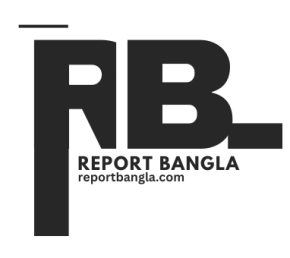Professor Yunus calls for working together to advance India-Bangladesh relations
Professor Muhammad Yunus, the Chief Advisor to the Interim Government of Bangladesh, and Indian Prime Minister Narendra Modi held a bilateral meeting in Bangkok today. The heads of government of the two South Asian neighbors exchanged cordial greetings with mutual respect. The 40-minute discussion between the two heads of government was frank, fruitful and constructive.
Professor Yunus said in the meeting, “Bangladesh attaches great importance to its relations with India. The friendship between our two countries is based on strong history, geographical proximity and cultural similarities. We are eternally grateful for the unwavering support of the Indian government and people during our difficult times in 1971.
Although this is the first direct meeting between the two leaders, Professor Yunus said that there have been many bilateral contacts between the two countries in the last eight months. Stating that the bilateral relations of the two countries are facing several challenges, Professor Yunus said, “We want to work together with you to take the relationship forward in the right direction for the benefit of the people of the two countries.”
As the new chairman of BIMSTEC, Professor Yunus sought India’s support for a free trade agreement among the seven member countries. He called for the negotiation of the renewal of the Ganga Water Sharing Treaty and the finalization of the Teesta Water Sharing Treaty.
Indian Prime Minister Narendra Modi congratulated Professor Yunus on assuming the responsibility as the chairman of BIMSTEC and extended Eid-ul-Fitr greetings.
Narendra Modi said that India has always given top priority to its relations with Bangladesh. He noted that the history of the two neighbouring countries has been inextricably linked since the creation of Bangladesh. Prime Minister Modi recalled Professor Yunus’ international stature and said that India will always stand for a progressive, democratic and inclusive Bangladesh. He stressed that India does not support any particular political party in Bangladesh. Prime Minister Modi said, “Our relationship is with the people.”
Professor Yunus sought India’s position on the extradition of Sheikh Hasina. He said that the former Prime Minister was trying to create instability in Bangladesh by making provocative statements through the media, which seemed to be an abuse of India’s hospitality.
Professor Yunus said, “Sheikh Hasina has been making false and provocative allegations about the interim government.”
The chief advisor said, “We request the Indian government to take appropriate steps to prevent her from making such statements during her stay in your country.”
Professor Yunus referred to the UN Human Rights Commission’s investigative report, which provided evidence of human rights violations by security forces and armed Awami League activists from July 15 to August 5, 2024.
The chief advisor said that the report said that 1,400 people were killed during the mass uprising, of whom about 13 percent were children. The report also stated that crimes against humanity such as murder, torture and inhumane acts were committed.
According to the UN report, the prime minister herself ordered the security forces to kill the protesters and “arrest the leaders and disappear the bodies.”
Prime Minister Modi blamed social media for Sheikh Hasina’s statements. He said that India’s relationship is not with any individual or group, but with the country.
Professor Yunus also raised the issue of border killings and said that working together to prevent such deaths will not only reduce the pain of the families but also strengthen the trust and relationship between the two countries.
The Head of Government said, “I feel pain every time these deaths occur.” He requested that India find ways to prevent such incidents.
Prime Minister Narendra Modi said that Indian border guards only fire in self-defense and the deaths occur inside India. Both leaders stressed the need to work together on the issue.
Professor Yunus expressed optimism about Bangladesh’s chairmanship of BIMSTEC. He said that Bangladesh wants to increase the visibility of BIMSTEC and build this organization as an effective and vibrant institution, which will help meet the expectations of the people of the region and create an efficient way to import and export goods worldwide.
Responding to Prime Minister Modi’s concerns about the situation of minorities in Bangladesh, the chief advisor said that reports of attacks on minorities have been greatly exaggerated and “most of it is fake news.”





